Akkermansia muciniphila reverses neuronal atrophy in Negr1 knockout mice with depression-like phenotypes
- PMID: 40388597
- PMCID: PMC12091914
- DOI: 10.1080/19490976.2025.2508424
Akkermansia muciniphila reverses neuronal atrophy in Negr1 knockout mice with depression-like phenotypes
Abstract
Genetic predispositions can shape the gut microbiome, which in turn modulates host gene expression and impacts host physiology. The complex interplay between host genetics and the gut microbiome likely contributes to the development of neuropsychiatric disorders, yet the mechanisms behind these interactions remain largely unexplored. In this study, we investigated the gut microbiota in Negr1 knockout (KO) mice, which exhibit anxiety- and depression-like behaviors, as NEGR1 (neuronal growth regulator 1) is a cell adhesion molecule linked to neuronal development and neuropsychiatric disorders. Our findings show significant early-life alterations in the gut microbiota composition of Negr1 KO mice, most notably a marked reduction in Akkermansia spp. along with reduced dendritic arborization and spine density in the nucleus accumbens (NAc) and the dentate gyrus (DG) of the hippocampus. Remarkably, daily administration of an Akkermansia strain isolated from wild-type mice reversed the neuronal structural abnormalities and ameliorated anxiety- and depression-like behaviors in Negr1 KO mice. Transcriptomic profiling revealed upregulation of mitochondrial genome-encoded genes in the NAc and hippocampus of Negr1 KO mice, along with a predisposition toward a pro-inflammatory state in the colon of Negr1 KO mice. The Akkermansia supplementation downregulated these mitochondrial genes in the NAc and hippocampus and upregulated genes involved in T cell activation and immune homeostasis in the colon. These findings demonstrate a novel gene-microbiome interaction in the pathophysiology of Negr1 KO mice, positioning Akkermansia spp. as a key mediator that improves neuronal atrophy and modulates anxiety- and depression-like behaviors. Our study provides compelling evidence for bidirectional interactions between host genetics and the gut microbiome in modulating neuropsychiatric phenotypes, offering new insights for addressing genetically influenced mental disorders.
Keywords: Akkermansia muciniphila; depression; genetic predisposition; microbiome.
Conflict of interest statement
No potential conflict of interest was reported by the author(s).
Figures
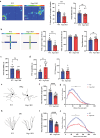
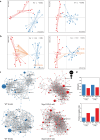
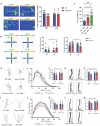
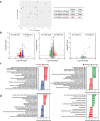
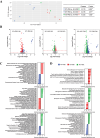
References
-
- Zhou M, Fan Y, Xu L, Yu Z, Wang S, Xu H, Zhang J, Zhang L, Liu W, Wu L, et al. Microbiome and tryptophan metabolomics analysis in adolescent depression: roles of the gut microbiota in the regulation of tryptophan-derived neurotransmitters and behaviors in human and mice. Microbiome. 2023;11(1):145. doi: 10.1186/s40168-023-01589-9. - DOI - PMC - PubMed
MeSH terms
Substances
Supplementary concepts
LinkOut - more resources
Full Text Sources
Medical
Research Materials
Miscellaneous
